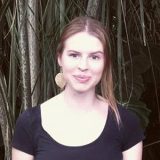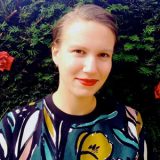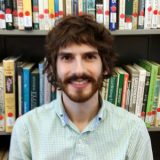Theodore Eisenman recently completed Ph.D. studies at the University of Pennsylvania, with a focus on urban greening—defined as the introduction or conservation of flora in cities.
His research addresses the historical, scientific, and perceptual bases that inform the bloom of greening in cities around the world today, and his dissertation situates this emergence amidst two important phenomena: global urbanization; and increasing awareness of human alteration of the biosphere, described as the Anthropocene Awakening. Before returning to academia, Eisenman worked in a range of federal, municipal, and nonprofit environmental planning and protection capacities. He has worked for the Environmental Protection Agency and consulted for the National Park Service, Scenic Hudson, The Nature Conservancy, Trust for Public Land, U.S. Forest Service, and Washington, D.C. Department of Parks and Recreation.
Eisenman has master’s degrees in Landscape Architecture and Natural Resource Management from Cornell University, where theses focused on watershed protection. He served as a panelist for EPA’s National Award for Smart Growth Achievement, and he has been a regular contributor to Landscape Architecture magazine on ecological design topics. Eisenman has served as a peer-reviewer for Island Press, Landscape and Urban Planning, Journal of Planning History, and Journal of Transportation History; academic publications include the Journal of Planning History and Journal of Planning Literature. Raised in Sweden and the U.S., and having worked as a Peace Corps Volunteer in Senegal, he is also interested in international affairs. In January 2016, Eisenman will be starting a tenure track faculty position at the University of Massachussetts, Amherst, in the Department of Landscape Architecture and Regional Planning.





